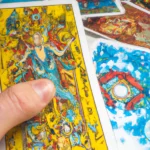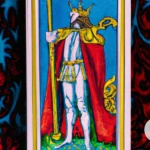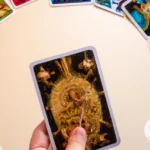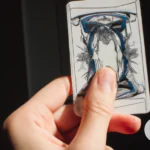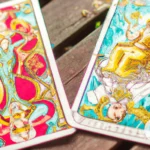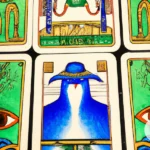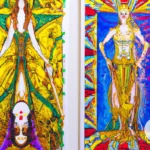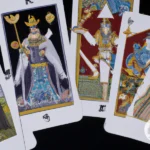Tarot cards have always been a fascinating aspect of divination, offering insight and guidance for those seeking it. The Minor Arcana cards in particular hold immense value and understanding them can be crucial for a good Tarot reading. However, the Marseille Tarot Deck can be confusing for beginners due to its unique symbolism and structure. In this article, we will delve into a detailed guide on how to understand and interpret the Minor Arcana cards in the Marseille Tarot Deck, including its four suits and court cards. By the end, you’ll be equipped with the knowledge to confidently incorporate the Minor Arcana cards into your Tarot readings.
What is Marseille Tarot Deck?
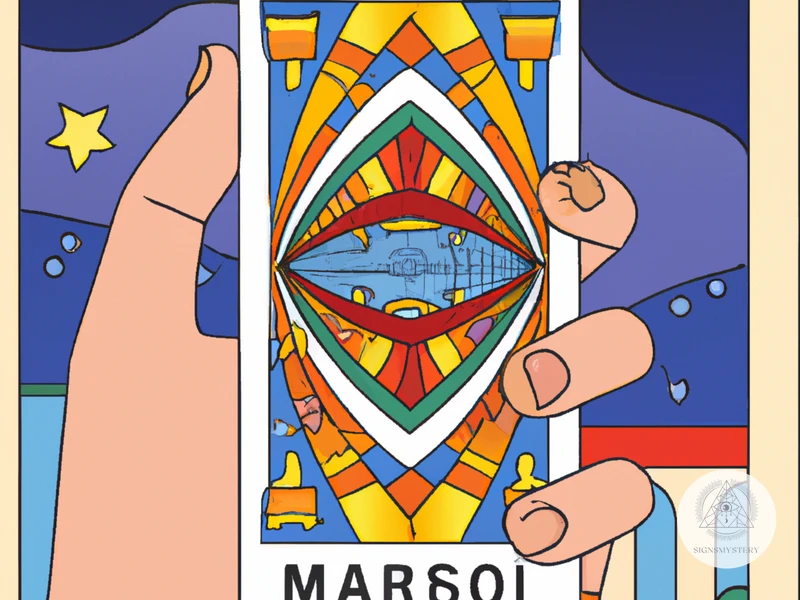
The Marseille Tarot Deck is a type of tarot card deck that originated in France during the 16th century. This deck is one of the oldest and most popular tarot decks in the world, and it is still widely used by tarot readers and enthusiasts today. The Marseille Tarot Deck is unique in its symbolism and design, and it is made up of 78 cards that are divided into two categories: the Major Arcana and the Minor Arcana.
The Major Arcana cards are the 22 trump cards in the deck, each of which has its own distinct symbolism and meaning. These cards are typically seen as more significant and powerful than the Minor Arcana cards, but both categories of cards are important for tarot readings.
The Minor Arcana cards are further divided into four suits, each of which has its own set of meanings and interpretations. These suits are Wands, Cups, Swords, and Coins (also known as Pentacles). Each suit is numbered from 1 to 10, and it also contains four court cards: Page, Knight, Queen, and King. Together, the Minor Arcana cards offer insight into everyday situations and experiences, and they can help shed light on specific aspects of a person’s life.
While the Marseille Tarot Deck can be challenging to read for beginners, there are many resources available to help those who are interested in learning how to read this deck. It’s important to familiarize yourself with the symbolism and meanings of each card, as well as their associations with numerology and the elements. Additionally, understanding how to interpret combinations of cards can help you gain a deeper understanding of the messages in your tarot readings.
The Marseille Tarot Deck is a powerful tool for self-discovery and introspection, and it has been used for centuries to provide guidance and insight. If you’re interested in learning more about this deck, there are many resources available online, including articles on the history and origins of the deck, tutorials for beginners, and tips and tricks for interpreting the cards.
Major vs Minor Arcana
When it comes to Marseille Tarot Deck, there are two distinct parts to the deck, the Major Arcana, and the Minor Arcana. While the Major Arcana cards are often seen as the more powerful and significant cards in the deck, the Minor Arcana cards can provide a wealth of insight and knowledge in their own right. The Minor Arcana cards are divided into four suits, and each suit has its own unique set of meanings, interpretations and symbolism. To understand the Minor Arcana cards better, it’s essential to explore the differences between the Major and Minor Arcana, and the role they play in the Marseille Tarot Deck. If you want to learn more about the origins and history of the Marseille Tarot Deck, check out History And Origin of Marseille Tarot.
The Structure of Minor Arcana Cards
The Minor Arcana Cards in Marseille Tarot Deck consist of 56 cards and are divided into four suits, each with its own unique symbolism and interpretation. The suits are Wands, Cups, Swords, and Coins, also known as Pentacles or Disks. Each suit contains ten numbered cards and four court cards, which are the Page, Knight, Queen, and King.
The numbered cards of the Minor Arcana represent everyday events, experiences, and situations in the querent’s life. They depict the ups and downs, joys and sorrows, successes and failures that one encounters on their journey. The cards are numbered from Ace to ten, with Ace being the beginning or source of the suit’s energy, and ten being the culmination or completion of that energy.
The Court Cards in the Marseille Tarot Deck represent specific people or personalities that the querent may encounter. They are often associated with the four elements – Pages with Earth, Knights with Air, Queens with Water, and Kings with Fire – and can be interpreted as different aspects of the querent’s own self, as well as people in their life.
In Marseille Tarot, the Court Cards do not have the same level of individuality and character development as in other Tarot decks, such as Rider-Waite or Thoth. Rather, they represent more abstract qualities and energies that the querent may need to embody or connect with.
The Marseille Tarot Cards can be read in combination with each other to provide more nuanced and detailed interpretations of a situation or question. The numbering of the cards, as well as the suit and element associations, can give clues to the overall message of the reading.
The Minor Arcana Cards can also be read in conjunction with the Major Arcana Cards, which provide a broader perspective and spiritual insight into the querent’s life path and purpose. In this way, the Marseille Tarot Deck can provide a comprehensive and holistic approach to divination and self-discovery.
If you’re interested in learning more about Marseille Tarot and its symbolism, you can check out our article on Marseille Tarot for Beginners, or read our comparison between Marseille Tarot and Rider-Waite Tarot in Marseille Tarot vs. Rider-Waite Tarot: Major Differences. For insights on common spreads and readings with Marseille Tarot, check out our article on Common Marseille Tarot Spreads for Insightful Readings.
The Four Suits of Minor Arcana Cards
The Minor Arcana cards are divided into four suits, each with its own unique set of symbols and meanings. These suits are Wands, Cups, Swords, and Coins. Understanding the differences between the suits is essential for accurate interpretation in tarot readings.
Wands Suit: Meanings and Interpretations
The Wands suit is also known as the Rods, Batons, or Staves suit in other decks. It is associated with the element of Fire, representing inspiration, creativity, and passion. The cards in this suit are often depicted with images of long sticks or wands.
The Wands suit represents action, ambition, and energy. It is often associated with career, entrepreneurship, and leadership. In a tarot reading, Wands cards suggest that the querent should take action or pursue their passions. They may also indicate that the querent is experiencing significant personal growth or has leadership potential.
Cups Suit: Meanings and Interpretations
The Cups suit is also known as the Chalices, Goblets, or Hearts suit in other decks. It is associated with the element of Water, representing emotions, intuition, and spiritual connection. The cards in this suit are often depicted with images of cups or bowls.
The Cups suit represents emotions, relationships, and intuition. It is often associated with love, romance, and family. In a tarot reading, Cups cards suggest that the querent should focus on their emotional well-being and personal relationships. They may also indicate that the querent is going through a significant emotional change or has a strong spiritual connection.
Swords Suit: Meanings and Interpretations
The Swords suit is associated with the element of Air, representing intellect, logic, and communication. The cards in this suit are often depicted with images of swords or knives.
The Swords suit represents conflict, intellect, and communication. It is often associated with decision-making, strategic planning, and problem-solving. In a tarot reading, Swords cards suggest that the querent should brace themselves for potential conflict or that there may be difficult decisions to make. They may also indicate that the querent is struggling with their communication or has intellectual challenges.
Coins Suit: Meanings and Interpretations
The Coins suit is also known as the Pentacles, Disks, or Diamonds suit in other decks. It is associated with the element of Earth, representing practicality, materialism, and physical health. The cards in this suit are often depicted with images of coins, gems, or disks.
The Coins suit represents work, finance, and physical health. It is often associated with career, money, and prosperity. In a tarot reading, Coins cards suggest that the querent should focus on their material well-being or physical health. They may also indicate that the querent is experiencing financial success or that there is a need to be grounded in their decisions.
Understanding the meanings and interpretations of each suit is essential for interpreting the Minor Arcana cards accurately. For a better understanding of the symbolism and interpretation of the Minor Arcana cards, it is essential to first have a good grasp of the Major Arcana cards and the overall symbolism in the Marseille Tarot Deck. You can read more about these topics in our articles on Marseille Tarot Major Arcana and Marseille Tarot Symbolism.
Wands Suit: Meanings and Interpretations
As we delve deeper into the Marseille Tarot Deck and explore the Minor Arcana, we come across the fascinating Wands Suit. Represented by the element of fire, this suit holds powerful symbolism and profound meaning. It is essential to understand the interpretations and nuances of each card within this suit to gain a comprehensive understanding of your Tarot readings. In this section, we will explore the fascinating meanings and interpretations of the Wands Suit and how you can apply them in your Tarot readings. So, let’s light our inner fire and explore the magical world of the Wands Suit.
Cups Suit: Meanings and Interpretations
The Cups Suit is one of the four suits in the Minor Arcana of the Marseille Tarot Deck. This suit is represented by the symbol of a cup, which is associated with the element of water, emotions, and intuition. In tarot readings, the Cups cards can reveal information about emotional experiences, relationships, and matters of the heart.
Some Examples of Cups Suit Cards:
- The Ace of Cups: This card signifies new emotional beginnings, opportunities for love, and spiritual growth.
- The Two of Cups: This card represents unions, partnerships, and mutual feelings of love and affection.
- The Three of Cups: This card often indicates celebrations, gatherings, and happy socializing with friends, family, or community.
- The Four of Cups: This card usually represents feelings of boredom, apathy, and disinterest in one’s current situation.
- The Five of Cups: This card often signifies feelings of grief, loss, and disappointment, as well as the need to let go of the past.
- The Six of Cups: This card usually represents nostalgia, happy memories, and childhood experiences.
- The Seven of Cups: This card often indicates having many choices, options, and dreams, and the need to focus on realistic expectations.
- The Eight of Cups: This card usually signifies a desire to leave things behind and start anew, as well as the need to follow one’s intuition and inner guidance.
- The Nine of Cups: This card is often referred to as the “wish card” and represents personal fulfillment, happiness, and satisfaction.
- The Ten of Cups: This card usually represents emotional harmony, happiness in relationships, and a sense of contentment with one’s life.
Interpreting Cups Suit Cards in Tarot Readings:
When interpreting Cups suit cards, it is important to pay attention to the imagery and symbolism in each card, as well as their position within the reading. Here are some possible meanings and interpretations of Cups suit cards:
The Upside-down Cups: When Cups cards appear upside down or reversed, they may indicate feelings of emotional instability, imbalance or repression. They might also suggest the need to confront and address one’s feelings or have an honest conversation with a partner, family member or friend.
Combining Cups Cards with Other Suits: When Cups cards are combined with other suits in a tarot reading, they may offer insights into the various aspects of one’s life. For example, a Cups card combined with a Swords card can indicate feelings of fear and anxiety in personal relationships, while a Cups card combined with a Wands card can indicate creative inspiration or a new passion project.
Numerology and Element Associations: Each Cups card has a number and an element association, which can offer additional clues for interpretation. For example, the Ace of Cups (1) is associated with new beginnings and the element of water, while the Ten of Cups (10) is associated with fulfillment and the element of earth.
In Conclusion:
The Cups Suit is a powerful and complex aspect of the Minor Arcana in the Marseille Tarot Deck. If you are interested in learning more about this suit and how to interpret it in your tarot readings, take some time to practice and experiment with different interpretations. Remember that tarot reading is a personal and intuitive process, and trust your intuition and inner guidance when interpreting Cups Suit cards.
Swords Suit: Meanings and Interpretations
The Swords suit is one of the four suits in the Minor Arcana cards of the Marseille Tarot Deck. It is represented by the element of air, that is associated with thinking, communication and rationalization. The Swords cards in a tarot reading can often reflect conflicts, struggles, and difficult decision making. Understanding the meanings and interpretation of Swords cards is crucial in being able to give an accurate tarot reading.
Below is a table that outlines the meanings and interpretations of each Swords card in the Marseille Tarot Deck:
| Card Name | Card Meaning | Upright Interpretation | Reversed Interpretation |
|---|---|---|---|
| The Ace of Swords | Clarity, decision-making, intellectual power | Breaking through mental barriers, gaining insight and realization, making a significant decision | Lack of clarity, confusion, indecisiveness, clouded judgement |
| The Two of Swords | Difficult choices, indecision, stalemate | Weighing options, finding balance, considering consequences | Fear of making decisions, feeling stuck, being blinded by emotions |
| The Three of Swords | Heartache, sorrow, grief | Betrayal, experiencing pain, release of emotions and negative energy | Recovery from heartache, forgiveness, healing emotional pain |
| The Four of Swords | Rest, meditation, healing, relaxation | Mental and physical recovery, taking a break, finding peace and solitude | Burnout, restlessness, inability to take time to heal and recover |
| The Five of Swords | Conflict, betrayal, defeat | Gaining power over rivals, establishing dominance, standing up for oneself | Acting dishonorably, avoiding conflict, losing power and dominance |
| The Six of Swords | Transition, moving on, change | Embracing change, moving forward, letting go of the past | Resistance to change, inability to move on, being stuck in the past |
| The Seven of Swords | Deception, betrayal, sneakiness | Avoiding confrontation, using intelligence and resourcefulness to solve problems, being a step ahead | Getting caught, facing the consequences of deceitful actions, losing trust and respect |
| The Eight of Swords | Feeling trapped, being a victim, powerlessness | Facing fears and overcoming obstacles, finding a solution to a difficult problem, realizing that freedom is possible | Being unable to see a way out, feeling helpless, being trapped by fear and negative thoughts |
| The Nine of Swords | Anxiety, fear, nightmares, depression | Facing one’s fears and anxieties, finding the root of negative thoughts, overcoming inner demons | Heightened anxiety and fear, inability to control negative thoughts, feeling overwhelmed and helpless |
| The Ten of Swords | Defeat, betrayal, intense pain | Moving on from pain and betrayal, accepting loss and preparing for new beginnings, acknowledging lessons learned | Being unable to move on from pain and betrayal, refusing to acknowledge lessons learned, feeling stuck in negative energy |
It is important to note that in tarot readings, context is key. The interpretation of a card can vary greatly depending on the question asked, the surrounding cards, and the intuition of the reader. However, this table can serve as a helpful guide in understanding the general meanings and interpretations of the Swords suit in the Marseille Tarot Deck.
Coins Suit: Meanings and Interpretations
The Coins suit, also known as the Pentacles or Discs suit, represents the element of Earth and is associated with material wealth, physical health, and the practical aspects of life. Each card in this suit offers a unique interpretation of these themes, providing insight into our relationship with money, the physical world, and our own bodies.
Below is a table outlining the meanings and interpretations of each of the Coins suit cards in the Marseille Tarot Deck.
| Card Name | Keywords | Meanings/Interpretations |
|---|---|---|
| Ace of Coins | Success, prosperity, new beginnings | This card represents a new opportunity for financial growth, stability, and abundance. It encourages us to be practical and focused on tangible results. |
| 2 of Coins | Balance, adaptability, juggling multiple responsibilities | The 2 of Coins suggests a need for balance and adaptability in our lives. It reminds us to prioritize our responsibilities and find creative solutions to challenges. |
| 3 of Coins | Collaboration, teamwork, apprenticeship | This card represents successful partnerships and collaborations, as well as the importance of learning from those more experienced than ourselves. It encourages us to seek out mentors and collaborate with others to achieve our goals. |
| 4 of Coins | Security, possession, greed | The 4 of Coins represents a strong desire for security and stability, which can sometimes border on possessiveness or greed. It encourages us to find a balance between financial security and generosity towards others. |
| 5 of Coins | Hardship, poverty, isolation | This card represents hardship, poverty, and a sense of isolation or exclusion. It encourages us to seek support and resources to overcome our challenges, and to remember that we are not alone. |
| 6 of Coins | Generosity, charity, balance | The 6 of Coins represents generosity, both in terms of giving and receiving. It encourages us to find a balance between our own needs and the needs of others, and to practice kindness and compassion in all aspects of our lives. |
| 7 of Coins | Patience, perseverance, investment | This card represents the fruits of our labors and the value of patience and perseverance. It encourages us to invest time and energy into the things that matter most to us, and to trust that our efforts will pay off in the long run. |
| 8 of Coins | Apprenticeship, skill development, attention to detail | The 8 of Coins represents a time of skill development and apprenticeship, as well as the importance of paying attention to detail. It encourages us to be diligent and focused in our work, and to see mistakes and setbacks as opportunities for growth and learning. |
| 9 of Coins | Independence, luxury, self-sufficiency | This card represents a sense of independence and self-sufficiency, as well as the ability to enjoy the finer things in life. It encourages us to take pride in our achievements and to trust in our own abilities. |
| 10 of Coins | Wealth, family, legacy | The 10 of Coins represents wealth, both financial and otherwise, as well as the importance of family and community. It encourages us to think about our legacy and the impact we want to leave on the world, and to recognize the role that our relationships and support networks play in our success. |
It’s important to note that these interpretations are not set in stone and may vary depending on the context of your tarot reading. Keeping an open mind and paying attention to the intuitive guidance of the cards can help you unlock deeper insights and understandings.
Understanding The Court Cards
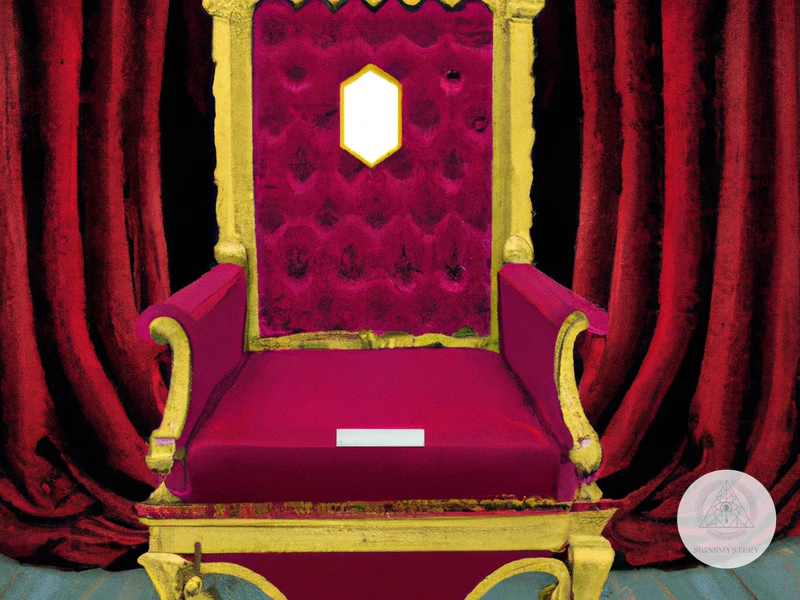
When it comes to interpreting the Minor Arcana cards in the Marseille Tarot deck, the Court Cards can often be the most confounding for beginners. These cards feature people instead of symbols, and each suit has its own set of Pages, Knights, Queens, and Kings. But fear not, as we delve into the meanings and interpretations of these cards, we’ll start to unravel the mysteries behind the Court Cards and gain a deeper understanding of their significance in tarot readings. Let’s explore these regal figures and their roles in the Minor Arcana.
Pages: Meanings and Interpretations
When it comes to the court cards in the Minor Arcana, the Pages are the ones that often puzzle beginners the most. In the Marseille Tarot Deck, the Pages represent young people who are still learning and growing, and they are associated with the element of Earth. Let’s take a closer look at the meanings and interpretations of each Page.
| Card | Keywords | Meaning |
|---|---|---|
| Page of Wands | ideas, enthusiasm, messages | The Page of Wands suggests that new ideas and opportunities are coming your way. You may feel enthusiastic and inspired to start something new or take a risk. Be open to messages and signs that may help guide you on your journey. |
| Page of Cups | emotions, creativity, romance | The Page of Cups represents emotional creativity and a focus on relationships. You may be feeling particularly romantic and sensitive, and may be inspired to express your feelings through art or other creative pursuits. Be aware of your emotions and let them guide you. |
| Page of Swords | logic, communication, challenges | The Page of Swords is associated with logic and communication, and may indicate that you are facing challenges or conflicts that require clear thinking and clear communication. Be strategic in your approach and be prepared for any obstacles that may arise. |
| Page of Coins | stability, practicality, security | The Page of Coins is focused on practicality and stability, and suggests that you may be working hard to build a secure financial or material foundation. You may be focused on learning new skills or expanding your knowledge to improve your long-term prospects. |
The Pages represent youthful energy and a willingness to learn and grow. They may indicate that new opportunities are coming your way, but you may need to be patient and willing to work hard to achieve your goals. By understanding the meanings and interpretations of the Pages in the Marseille Tarot Deck, you can gain deeper insight into your tarot readings and better understand the messages that the universe
Subscribe to Our Newsletter
Sign up to receive the latest news and updates.
Knights: Meanings and Interpretations
The knights are the second set of Court Cards in the Minor Arcana of the Marseille Tarot Deck, and they represent action, movement, and change. They are often seen as intermediaries between the pages and the queens and kings within their respective suits.
Each of the four knights in the Marseille Tarot Deck has a specific energy and meaning, as outlined below:
| Knights | Meanings and Interpretations |
|---|---|
| Knight of Wands | The Knight of Wands represents passion, creativity, and adventure. He is bold, impulsive and likes to take charge. This card indicates travel, a new project or idea, and the need to take action with confidence and enthusiasm. |
| Knight of Cups | The Knight of Cups represents emotional intelligence, romance, and diplomacy. He is sensitive, compassionate and uses his intuition to guide him. This card indicates a artistic or romantic proposal, the need for emotional connection, and the importance of trusting your feelings. |
| Knight of Swords | The Knight of Swords represents mental clarity, determination, and strategy. He is powerful, decisive and likes to confront problems head-on. This card indicates a time for action and making firm decisions, as well as a need for clear communication and taking calculated risks. |
| Knight of Coins | The Knight of Coins represents practicality, stability, and reliability. He is hardworking, persistant, and focused on building security. This card indicates a focus on financial matters, a time for saving and investing money and resources, and the need for patience and persistence in achieving long-term goals. |
It is important to consider the energy and meaning of the specific knight in each reading and what role they play in the overall story of the cards. Knights can indicate a call to action or a need for a particular skill or characteristic to be employed in a situation. They can also represent people in the querent’s life who embody the energy of the knight.
Queens: Meanings and Interpretations
The Queens in the Minor Arcana cards of the Marseille Tarot Deck represent feminine energy, nurturing, and supportive aspects. There are four Queens in the deck and each one has unique meanings and interpretations.
| Queen | Meaning | Interpretation |
|---|---|---|
| The Queen of Wands | Enthusiasm, Creativity, and Confidence | The Queen of Wands represents a warm, passionate, and confident woman who is enthusiastic and creative. She is a natural leader and has a strong desire to achieve her goals, often with a sense of urgency. |
| The Queen of Cups | Intuition, Emotions, Sensitivity, and Compassion | The Queen of Cups represents a loving and empathetic woman who is deeply in touch with her emotions and intuition. She is kind and compassionate, and often serves as a calming presence in the lives of those around her. |
| The Queen of Swords | Clarity of Vision, Objectivity, and Intellect | The Queen of Swords represents a rational, intelligent woman who has the ability to see things clearly and objectively. She is a deep thinker and often uses her intellect to make decisions and solve problems. |
| The Queen of Coins | Financial Stability, Practicality, and Nurturing | The Queen of Coins represents a nurturing and practical woman who is focused on financial stability and providing for her loved ones. She is grounded and patient, often offering practical advice and support to those around her. |
When interpreting the Queens in a tarot reading, it is important to consider their specific suit and the energy they bring to the reading. They can symbolize the qualities of the woman being read for or represent a woman who will play a significant role in the seeker’s life. Their presence in a reading can also signify the need for balance or the importance of tapping into feminine energy.
Kings: Meanings and Interpretations
In Tarot, the Kings represent strength, power, and leadership. There are four Kings, one for each suit of the Minor Arcana, and they bring their own unique energy to the reading. Let’s take a closer look at each of the Kings and their meanings.
| King of Wands | King of Cups | King of Swords | King of Coins |
|---|---|---|---|
| The King of Wands represents bold and charismatic leadership. He is passionate and often takes risks to achieve his goals. He brings creativity to the table and inspires others to follow his lead. In a reading, he can indicate a need for taking action and following one’s passions. | The King of Cups represents emotional maturity and compassion. He is warm and supportive, and often takes on the role of caregiver. He represents the balance between head and heart, and encourages us to tune into our emotions. In a reading, he can indicate a need for self-care and nurturing relationships. | The King of Swords represents intellectual strength and clarity of thought. He is analytical and objective, but can also be stern and uncompromising. He represents the ability to make tough decisions and stand up for oneself. In a reading, he can indicate a need for logic and critical thinking. | The King of Coins represents financial stability and practicality. He is hardworking and grounded, and values security and stability. He represents a strong connection to the material world and a practical approach to problem-solving. In a reading, he can indicate a need to be financially responsible and focus on stability. |
When the Kings appear in a reading, it is important to pay attention to which suit they belong to, as this will give more specific insight into the situation at hand. They may represent a person in the querent’s life who embodies these qualities, or they may indicate the need for the querent to embody these qualities themselves.
It is also important to note that the Kings can sometimes represent negative qualities if they appear in a reversed position. The King of Wands may become reckless, the King of Cups may become emotionally manipulative, the King of Swords may become cruel, and the King of Coins may become greedy. When interpreting a reversed King, it is important to focus on the negative aspect and find ways to shift towards a more positive outcome.
How To Interpret Minor Arcana Cards In Your Tarot Readings?
As a tarot reader, interpreting the minor arcana cards in a reading can be a challenging task. These cards hold significant meanings and messages that should not be overlooked. However, as a beginner, understanding the intricate details of each card can be perplexing. Thus, it’s important to know the ways to decipher them accurately. In this section, we’ll explore some valuable techniques that can help you interpret minor arcana cards in your tarot readings effectively. From combining minor arcana cards to using numerology and element associations to deciphering reversed minor cards, we’ll provide you with all the tips you need to master the art of interpreting minor arcana cards.
Combining Minor Arcana Cards
Combining Minor Arcana Cards is an important skill for any tarot reader. When multiple Minor Arcana cards appear in a reading, they work together to create a more nuanced interpretation. Here are some tips on how to effectively combine Minor Arcana Cards in your tarot readings:
- Notice the dominant suit: If one suit appears more frequently in a spread, it can indicate a particular focus or theme for the reading. For example, if you receive mostly Cups and Swords cards in a love reading, it could show an emphasis on communication and emotions in the relationship.
- Consider the numerology: Each number in tarot has its own meaning and significance. For example, the number 3 represents creativity and communication, while the number 8 represents strength and abundance. Take a look at the total sum of the numbers in the cards to gain insight into the overall message of the spread.
- Look at the elements: Each Minor Arcana suit is associated with an element – Wands with Fire, Cups with Water, Swords with Air, and Coins with Earth. If multiple cards from the same suit appear, it can indicate the dominance of that element in the situation. For example, if you receive multiple Swords cards in a reading about a conflict, it could suggest that clear communication is needed to resolve the issue.
- Pay attention to the Court Cards: The Court Cards represent people and personalities that are involved in the situation. If multiple Court Cards appear, take note of their positions in the spread and how they relate to each other to gain a deeper understanding of who they represent and what their roles are.
By combining Minor Arcana Cards in these ways, you can extract more information from your tarot readings and gain a more detailed understanding of the situation at hand.
Using Numerology And Element Associations
When interpreting the minor arcana cards in your tarot readings, using numerology and element associations can provide deeper insight into their meanings. Each card is associated with a number and an element, which can help you understand the card’s energy and symbolism.
Numerology: Each minor arcana card is associated with a number, ranging from 1 to 10. The number represents the card’s energy and can provide clues to the card’s meaning. For example, the Ace of Cups has a numerology value of 1, symbolizing new beginnings and potential, while the Ten of Wands has a numerology value of 10, representing completion and the end of a cycle.
Element Associations: Each suit of the minor arcana cards is associated with an element – Wands with Fire, Cups with Water, Swords with Air, and Coins with Earth. These element associations can provide additional insight into the card’s energy and meaning. For example, the Two of Wands is associated with Fire, representing passion, creativity, and energy, while the Two of Cups is associated with Water, representing emotions, intuition, and relationships.
By combining both numerology and element associations, you can deepen your understanding of the minor arcana cards and their meanings. For example, the Six of Swords has a numerology value of 6, representing harmony and balance, and is associated with Air, representing intellect, communication, and change. This can indicate a situation where a communication breakthrough brings peace and balance to a difficult situation.
Understanding numerology and element associations can enhance your tarot readings and provide a more detailed interpretation of the minor arcana cards. By using these tools together, you can gain a deeper understanding of the symbolism and energy represented in each card.
Reading Reversed Minor Arcana Cards
When a Tarot card appears reversed in a reading, it can bring a new layer of meaning or reveal opposing energies at play. The same applies to reversed Minor Arcana cards in Marseille Tarot Deck. It is essential to take note of reversed cards and interpret them accordingly to gain a more nuanced perspective of the reading.
Here are some tips to help you interpret reversed Minor Arcana Cards:
- Opposing Energies: Reversed cards can indicate opposing energies or blockages of the upright meaning. For example, if the upright Ace of Swords represents mental clarity and cutting through confusion, the reversed Ace of Swords can signify confusion or a lack of mental clarity.
- Intensification: Sometimes reversed cards can bring an intensified version of the upright meaning. For instance, the upright Two of Cups represents a balanced and harmonious relationship while the reversed Two of Cups can indicate an intense emotional connection or codependency in the relationship.
- Inner Journey: Reversed cards can also suggest an inner journey towards self-awareness and healing. When you see reversed Minor Arcana cards in a reading, it may be a sign that there are some internal challenges that need to be addressed.
- Alternative Meaning: In some cases, the reversed meaning of a card can be opposite to the upright meaning. For instance, the upright Eight of Wands represents quick action and progress while the reversed Eight of Wands can suggest a need to slow down and take a break to avoid burnout.
- Context: Always consider the context of the reading while interpreting reversed Minor Arcana cards. The meaning of the card may vary depending on its position within the spread or the neighboring cards.
When reading reversed Minor Arcana cards in Marseille Tarot Deck, it is crucial to pay attention to the symbolism and overall energy of the card. Keep in mind that reversed cards can provide valuable insights into the querent’s current situation and can help them prepare for the challenges ahead.
Conclusion
In conclusion, the Marseille Tarot Deck’s Minor Arcana Cards are an integral component of tarot readings. Understanding the meanings and interpretations of each of the suits and court cards can be overwhelming, but taking the time to study and practice with them can lead to more accurate and insightful readings.
It’s essential to remember that each card’s meaning can vary depending on the context of the question asked, the card’s position in the spread, and surrounding cards. Therefore, it’s vital to approach each reading with an open mind and a willingness to explore different interpretations.
By combining the Minor Arcana cards with numerology and element associations, readers can dive deeper into the cards’ symbolism and meaning, providing more nuanced and detailed readings.
Additionally, it’s crucial to remember to consider reversed cards and their meanings when interpreting Minor Arcana cards. Reversed cards can indicate challenges or obstacles for the question asked, requiring a more detailed approach in understanding their significance.
Finally, regularly practicing with the Marseille Tarot Deck’s Minor Arcana cards is the best way to develop a solid foundation in tarot reading. It may feel daunting at first, but with practice and patience, understanding the cards’ meanings and symbolism will become second nature. Overall, the Minor Arcana Cards provide a rich and diverse set of interpretations, offering readers a wealth of insights to explore and interpret in their readings.
Frequently Asked Questions
What is the difference between Major and Minor Arcana cards?
The Major Arcana cards represent big life themes and important events, while the Minor Arcana cards reflect everyday experiences and situations.
How many cards are there in the Minor Arcana?
There are 56 cards in the Minor Arcana.
What are the four suits of the Minor Arcana?
The four suits of the Minor Arcana are Wands, Cups, Swords, and Coins.
What do the Wands represent in the Marseille Tarot Deck?
The Wands represent passion, creativity, energy, and ambition.
What do the Cups represent in the Marseille Tarot Deck?
The Cups represent emotions, relationships, intuition, and spirituality.
What do the Swords represent in the Marseille Tarot Deck?
The Swords represent challenges, conflicts, change, and action.
What do the Coins represent in the Marseille Tarot Deck?
The Coins represent material possessions, money, career, and stability.
What is the meaning of reversed Minor Arcana cards?
Reversed Minor Arcana cards indicate blocked energy, resistance, or a need for extra attention in that area of life.
What is the significance of numerology in interpreting Minor Arcana cards?
Numerology helps to understand the energy and symbolism associated with each card number.
How can I use the element associations to interpret Minor Arcana cards?
The element associations of Wands (Fire), Cups (Water), Swords (Air), and Coins (Earth) help to deepen the understanding of the card meanings and associations.



